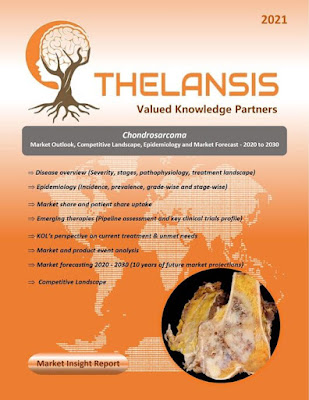Chronic Idiopathic Urticaria (CIU) – Market Outlook, Epidemiology, Competitive Landscape, and Market Forecast Report – 2022 To 2032
Chronic urticaria (CU) is characterized by recurring hives or welts, which appear at least twice a week for a minimum of 6 weeks. The exact cause of CU is not fully comprehended, but it's believed that the release of histamine due to mast cell degranulation plays a central role. While many CU patients don't have a specific allergen triggering their mast cells, in cases where no underlying cause is identified, the diagnosis is chronic idiopathic urticaria (CIU). CU exhibits various clinical manifestations, primarily marked by the rapid emergence of wheals and angioedema. A wheals typically includes three key elements: (i) a central swelling of variable dimensions, (ii) accompanied by itching or occasionally a burning sensation, and (iii) lasting briefly, usually for 1-24 hours. Angioedema is characterized by sudden, pronounced swelling in the deeper layers of the skin. It can sometimes be painful and takes longer to resolve than wheels (up to 72 hours). Around 40-50% of cases involving urticaria are linked to angioedema. For the management of CIU, treatment follows a stepwise approach as advised by guidelines. Initial steps involve using non-sedating over-the-counter antihistamines. As CIU affects the whole body, topical skin creams are not a suitable treatment option. Omalizumab is the lone FDA-approved biologic treatment for chronic idiopathic/spontaneous urticaria in the United States. I was prescribed for individuals aged 12 and above who continue to experience symptoms despite antihistamine therapy.
·
CIU impacts around 1.6 million individuals in
the USA and is commonly observed in people aged 20 to 40. Women are twice as
likely as men to be affected by CIU.
Thelansis’s “Chronic Idiopathic
Urticaria (CIU) Market Outlook, Epidemiology, Competitive Landscape, and Market
Forecast Report – 2022 To 2032" covers disease overview, epidemiology,
drug utilization, prescription share analysis, competitive landscape, clinical
practice, regulatory landscape, patient share, market uptake, market forecast,
and key market insights under the potential Chronic Idiopathic Urticaria (CIU)
treatment modalities options for eight major markets (USA, Germany, France,
Italy, Spain, UK, Japan, and China).
KOLs insights
of Chronic Idiopathic Urticaria (CIU) across 8 MM market from the centre of
Excellence/ Public/ Private hospitals participated in the study. Insights
around current treatment landscape, epidemiology, clinical characteristics,
future treatment paradigm, and Unmet needs.
Chronic Idiopathic Urticaria (CIU) Market Forecast Patient
Based Forecast Model (MS. Excel Based Automated Dashboard), which Data Inputs
with sourcing, Market Event, and Product Event, Country specific Forecast
Model, Market uptake and patient share uptake, Attribute Analysis, Analog
Analysis, Disease burden, and pricing scenario, Summary, and Insights.
Thelansis Competitive Intelligence (CI) practice
has been established based on a deep understanding of the pharma/biotech
business environment to provide an optimized support system to all levels of
the decision-making process. It enables business leaders in forward-thinking
and proactive decision-making. Thelansis supports scientific and commercial
teams in seamless CI support by creating an AI/ ML-based technology-driven
platform that manages the data flow from primary and secondary sources.


Comments
Post a Comment